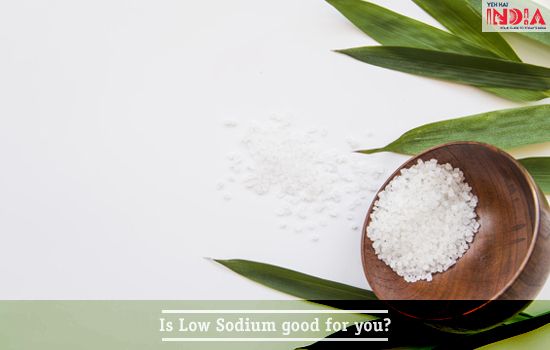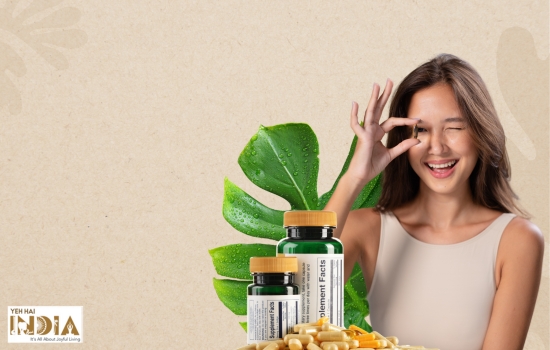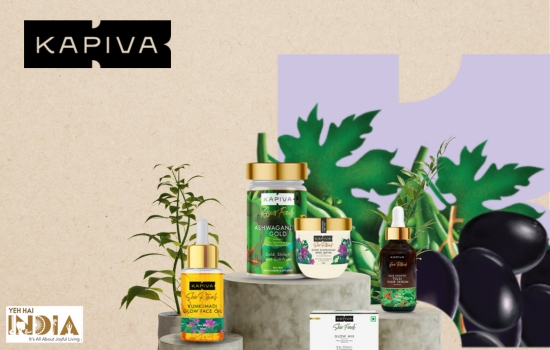Sodium is a mineral that can be found in foods such as eggs and vegetables and is added in the form of either salt or sodium-containing substances. It is vital for the human body, mainly for essential functions.
Humans have five different taste receptors: Salty, Sweet, Bitter, Sour, and Umami. The most commonly triggered cravings are for sweets and salt, but if not consumed within limits, they can have great repercussions.
Though it is said to be a vital mineral for the human body, dietary sodium needs to be consumed within certain limits, especially for people with medical conditions such as heart issues, kidney problems, and high blood pressure.
In this article, we’ll dive deeper to understand the importance of Sodium in our diet, and the effects of excessively high or low intake.
Recommended Story – Best Indian Diet Plan for a Healthy Life
Importance of Sodium
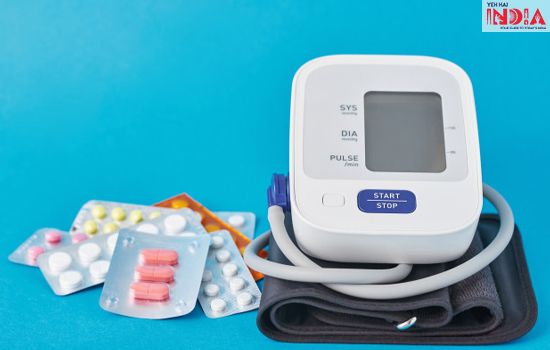
Sodium is a mineral that is also one of the electrolytes of the human body and needs to be carried out in large amounts. When dissolved in the fluids of the body, such as blood, the electric charge is carried by the electrolytes.
It keeps cellular function and electrolyte balance in check.
This way it helps keep the fluids in a normal balance. It even plays an important role in keeping nerve and muscle function normal.
It also helps the kidneys regulate their level based on the concentration of fluids in the body.
Sodium is mostly located in the blood and the fluids around the cells, and is obtained through the consumption of foods and drinks and lost through precipitation and urine.
It helps in keeping both blood pressure and blood volume in check, but again, the consumption needs to be done keeping in mind the quantity and age factors.
Recommended Daily Intake
The recommended daily intake of sodium (Na) for adults is 5000 milligrammes per day. However, most people consume around 10 grammes per day.
Too much sodium intake can lead to multiple problems that can hinder the normal functioning of the body.
Effects of Excessive Sodium Consumption
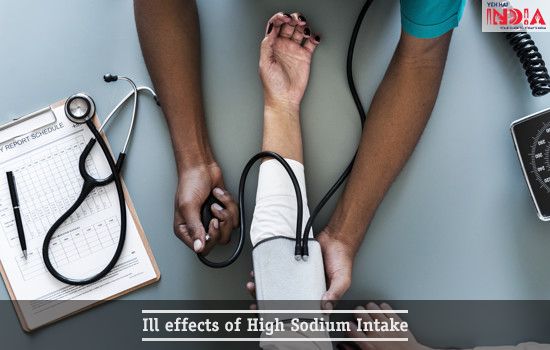
- High sodium intake increases the risk of high blood pressure, stroke, and complete heart failure.
- It even increases the risk of stomach cancer, kidney disease and stones, osteoporosis, enlarged heart muscles, and continuous headaches.
- It results in light-headedness upon standing and might be frequently experienced.
- Sodium intake results in water retention, which later results in bloating, puffiness, and weight gain.
It is important to note that these are just some of the potential effects of excessive intake of this salty mineral. The effects of its intake can vary from person to person.
Benefits of Adequate Sodium Consumption
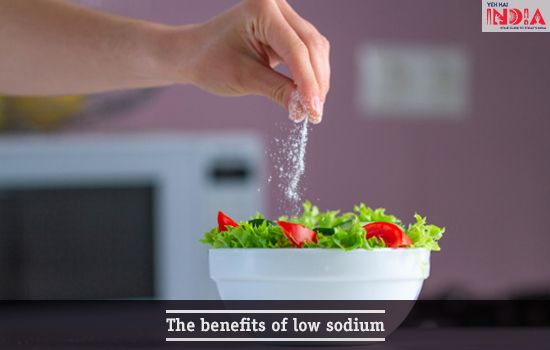
High salt consumption can be harmful and even life-threatening. Though low-Na diets are only recommended for people dealing with heart, renal, or high blood pressure problems, a general low-Na diet has several benefits, which are outlined below:
- The blood vessels of the kidneys can be badly affected and shrink in size due to high Na. Therefore, low Na helps keep the kidneys healthy.
- High Na intake can cause the blood vessels in the brain to weaken and can get worse as it may result in a brain bleed. Low Na reduces the risk of brain aneurysms.
- As high blood pressure can affect the blood flow to the brain, this leads to decreased brain health, which can further affect memory and the ability to think. Low intake can improve memory.
- Consumption of salty foods can lead to increased thirst and dehydration, which motivates people to consume unhealthy aerated drinks. Low intake helps prevent indulgence and the consumption of unhealthy aerated drinks.
- Helicobacter pylori, bacteria that can live in your stomach, can only thrive and be the reason for stomach cancer if there is a high quantity of salt consumed.
Recommended Story – Top Weight Loss Diets In India
Sodium and Heart Health
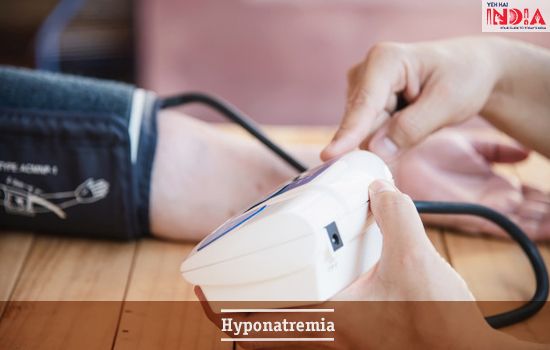
- Lowering the sodium intake will reduce the potential damage to the heart, and the heart muscles will retain their original size.
- Low sodium decreases the amount of fluid in the blood, which reduces blood pressure.
- Low-density lipoprotein, known as bad cholesterol, shoots up due to high intake and is triggered by the consumption of packaged food. Low intake lowers LDL cholesterol.
- The decrease in blood flow to the brain eventually results in increased chances of stroke. Low intake helps reduce the chances of stroke.
- Low sodium helps keep the pumping of the blood through the blood vessels normal, which prevents congestive heart failure.
- Hard arteries and stiff vessels make the blood flow a difficult ride, which can happen due to continual high intake. Low sodium prevents the thickening and hardening of the arteries.
- High sodium hardens the walls of the heart and makes the pumping of the heart a tedious job. Balanced blood pressure helps the heart pump effectively.
Overview of Hyponatremia and Hypernatremia

| Hyponatremia | Hypernatremia | |
| Definition | A condition characterized by low blood sodium levels (lower than 135 mEq/L). | A condition characterized by high blood sodium levels (146-155 mEq/L). |
| Causes | – Excessive fluid intake | – Insufficient fluid intake |
| – Kidney dysfunction | – Dehydration | |
| – Certain medications | – Diabetes | |
| – Hormonal imbalances | – Excessive sweating | |
| Symptoms | – Nausea and vomiting | – Thirst |
| – Headache | – Dry mouth and skin | |
| – Confusion | ||
| – Fatigue | – Confusion and irritability | |
| – Seizures | – Muscle weakness | |
| – Coma | – Rapid heartbeat | |
| Treatment | – Treating the underlying cause | – Rehydration with fluids |
| – Fluid restriction | – Adjusting fluid intake | |
| – Medications to correct sodium levels | – Treating the underlying cause | |
| – In severe cases, intravenous fluids may be needed |
Anything excessive or less can lead to complications. Low intake may be beneficial for many reasons, but it only applies to those who require it and are experiencing certain health conditions. For a human body to function normally, sodium levels need to be under control and within limits.
Tips for Reducing Sodium Intake

- Read food labels.
- Choose low-sodium foods, such as fruits, vegetables, and whole grains.
- Limit processed foods, as they often tend to be high in sodium.
- Avoid adding salt to your food. When you cook, try to use herbs and spices instead of salt to flavour your food.
- Restrict table salt.
- Drink water instead of packaged sugary drinks.
Conclusion
Sodium plays a crucial role in our daily diet, affecting various aspects of our body’s functioning. Both low and high intakes can have adverse effects on our health.
Maintaining a balanced sodium intake is crucial for our overall well-being. It is important to be mindful of the sodium content in our diet and make conscious choices to reduce its intake. This can be achieved by opting for fresh, whole foods, cooking at home, and reading food labels to make informed decisions.
However, it is essential to note that the ideal intake may vary based on individual factors such as age, health conditions, and physical activity levels. Therefore, it is always advisable to consult a healthcare professional or a registered dietitian for personalised advice on sodium intake and dietary adjustments.
By maintaining a balanced sodium intake, we can support optimal fluid balance, nerve function, muscle contractions, and heart health. Let’s prioritise our health by being mindful of our sodium consumption and making informed choices to achieve a healthy and balanced lifestyle.
Moderation is the key to reducing sodium intake!
Also Read – Keto diet becoming famous in India- But is it safe?


